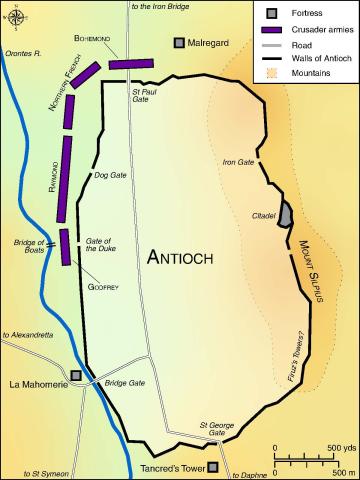The March to Jerusalem
[10.31.4] Hoc tōtum laudāvit Boamundus, et prōmīsērunt ambō, in manibus epīscopōrum, quod nūllō modō per sē via Sānctī Sepulchrī dēturbārētur. Tunc accēpit Boamundus cōnsilium cum suīs hominibus, quōmodo mūnīret castrum dē altā montaneā hominibus et vīctū. Similiter comes Sānctī Egidīī accēpit cōnsilium cum suīs, quōmodo mūnīret palātium Cassiānī ammiralīī, et turrim quae est super portam pontis quī est ex parte portūs sānctī Symeōnis—mūnīret, inquam, hominibus et vīctū, quī nōn dēficeret longō tempore.
notes
vocabulary
media
Maps and Images Ref
Text Read Aloud

